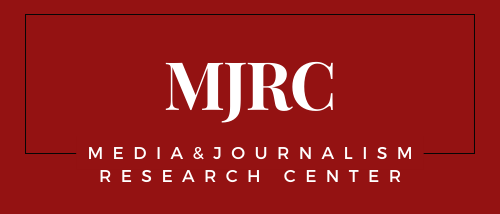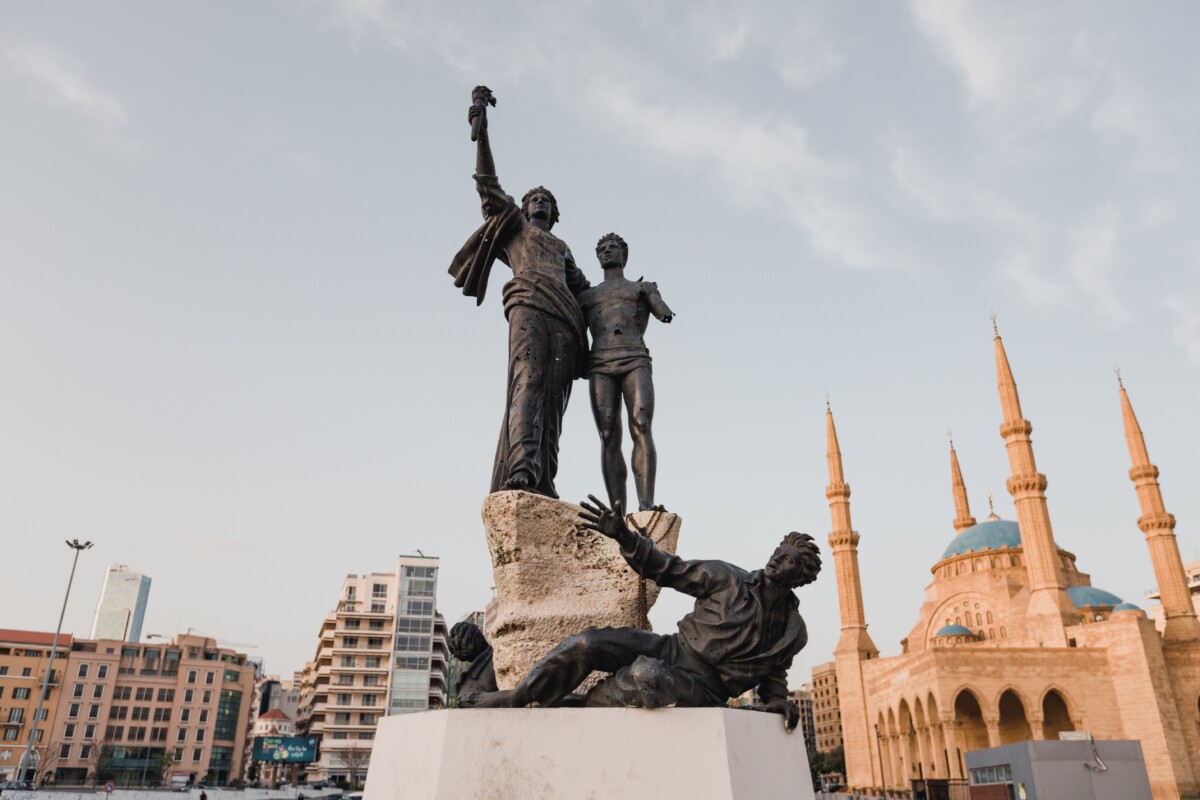Media Reform in Lebanon
Lebanon is currently facing an unprecedented multiple crisis at political, social and economic levels. Substantial reforms are a main precondition of any recovery. During this period of uncertainty and transition, independent and trustworthy media is more important than ever to enable Lebanese people to hold those in power accountable. Independent media and free access to information play an essential role in ensuring accountability, following up on reforms, revealing corruption and equipping people wuth evidence-based information on matters of public interest.
In collaboration with Maharat and Legal Agenda, two NGOs based in Lebanon, Media and Journalism Research Center (MJRC) has embarked on the project “Support to Media Reform in Lebanon to Enhance Freedom of Expression”. The aim of the project is to provide openings at policy level to media reform in Lebanon to enhance freedom of expression.
Maharat has been consistently working to advance a supportive ecosystem for Freedom of Expression (FoE) through its advocacy work, media monitoring reports, training programs, and diverse resources about FoE including Internet freedom. Legal Agenda is an established socio-legal research, strategic litigation and advocacy organization, with a specialized media outlet that attracts an average of 600,000 visitors per year from Lebanon and the MENA region. It has a more than 10-years of track record in driving public debate on socio-legal issues, in particular related to the independence of the judiciary, liberties, public freedoms, and socio-economic rights.
The project aims to enable local actors, including MPs, relevant ministries, judges, lawyers, scholars and media makers to create these openings, building on European standards while making sure only those fitting the context apply. The project supports EU priorities in the field of human rights, specifically freedom of expression, to strengthen democracy and assist in the implementation of the EU EOM’s finding as per the Human Rights and Democracy Thematic Program under Global Europe: Neighbourhood, Development and International Cooperation Instrument (NDICI) – the EU program for external action funds for 2021-2027.
As part of its role in the project, MJRC has established a team of six experts who wrote studies on EU standards and good practices that provide inspiration for media policy in Lebanon. The research project consists of expert papers about the following topics:
Monitoring the Ballot: Election Supervision and Observation
Regulation of Social Media and Elections in Europe
How Associations of Journalists Protect Press Freedom in Europe
Arabic version here
Protection of Journalists and Journalistic Sources in Europe
Arabic version here
Public Interest Journalism Startups in Europe: Trends, Players, Challenges and Incentives
Arabic version here
How to Modernize Media Laws to Cope With Digital Change
Arabic version here
Decriminalization of Defamation in the Context of Free Speech: A European Perspective
Arabic version here
A Balancing Act: EU Media Regulation, Co-Regulation and Self-Regulation in the Digital Age
Arabic version here
See some of the studies produced in the first year of the project compiled in the volume Freedom of Expression in Europe
Cite this study
Minna Aslama Horowitz, Attila Mong, Judith Pies, Andrei Richter and Krisztina Rozgonyi. (2024). Freedom of Expression in Europe. Marius Dragomir (ed.). Tallinn/London/Santiago de Compostela: Media and Journalism Research Center (MJRC).
Minna Aslama Horowitz is a Docent at the University of Helsinki, a researcher at the Nordic Observatory for Digital Media and Information Disorder (NORDIS), and a Fellow at St. John’s University, New York. She is also a member of the Think Tank of the Nordic Council of Ministers to address platformization in the Nordics. She holds a Ph.D. from the University of Helsinki and has taken part in several international research activities in the past decade.
Attila Mong is a Hungarian-born journalist, radio broadcaster and columnist with more than 20 years of experience in news and investigative reporting. Now based in Berlin, Attila works as Europe representative of the global press freedom organization, the Committee to Protect Journalists (CPJ) and a consultant on digital innovation projects with the DW Akademie, Germany’s leading media development organization. He is a supervisory board member of Atlatszo, a crowdfunded investigative journalism platform in Hungary.
Adriana Mutu is a University Professor in the Departments of Humanities and Market Research at ESIC Business & Marketing School in Barcelona, where she also serves as the Head of Academic Quality. She holds a Ph.D. in Political Science from the Autonomous University of Barcelona and a MA in Journalism and Communication Sciences from the University Alexandru Ioan Cuza of Iasi, Romania. She has conducted research at the University of Pennsylvania and the University of Helsinki. Adriana is founding member of MEDEA (Mediterranean Europe and Africa) and provides expertise to the Council of Europe and the European Commission.
Judith Pies holds a PhD in communication science from the University of Erfurt. She has been working as a professor for digital and international journalism at the Hochschule der Medien Stuttgart, the University of Dortmund and the Bundeswehr University Munich since 2015. She has long-standing experience in academic research, teaching, journalism and management of international media projects. In 2018, she has founded the organization Media | Competence | International, which offers international media consultancy and training in media literacy.
Richter is Researcher Professor at Comenius University in Bratislava and Adjunct Professor of the Webster University in Vienna. In 2011-22 he served as Director and a Senior Adviser at the Office of the OSCE Representative on Freedom of the Media. An Austrian citizen, Richter holds university degrees in law, journalism and foreign languages, a doctorate of philology in Russia and a habilitated professorship in media studies from Slovakia.
Dr Krisztina Rozgonyi is Senior Scientist at the Institute for Comparative Media and Communication Studies (CMC) of the Austrian Academy of Sciences (ÖAW) and a senior international media, telecommunication and IP legal and policy expert. She works with international and European organizations (such as the ITU/UN, UNESCO, Council of Europe, European Commission, World Bank InfoDev, OSCE and BBC MA), with national governments, and regulators as an adviser on media freedom, spectrum policy and digital platform governance.
Page photo by Marten Bjork on Unsplash
Krisztina Rozgonyi’s photo by Monika Saulich.
Invest in independent media research and join a community of practice.
Your contribution supports MJRC’s investigations and global analysis. As a supporter, you can receive early access to new findings, invitations to small-group briefings, inclusion in our Supporters Circle updates, and the option to be listed on our Supporters Page.
Contribute to MJRC
